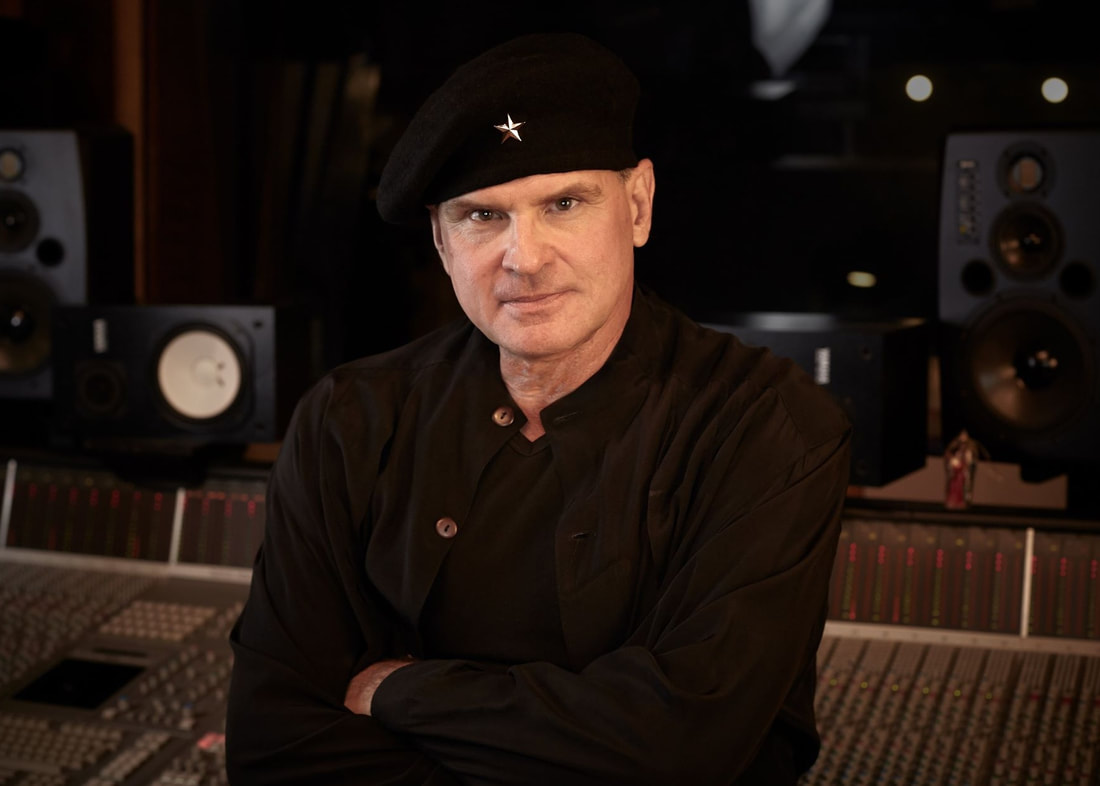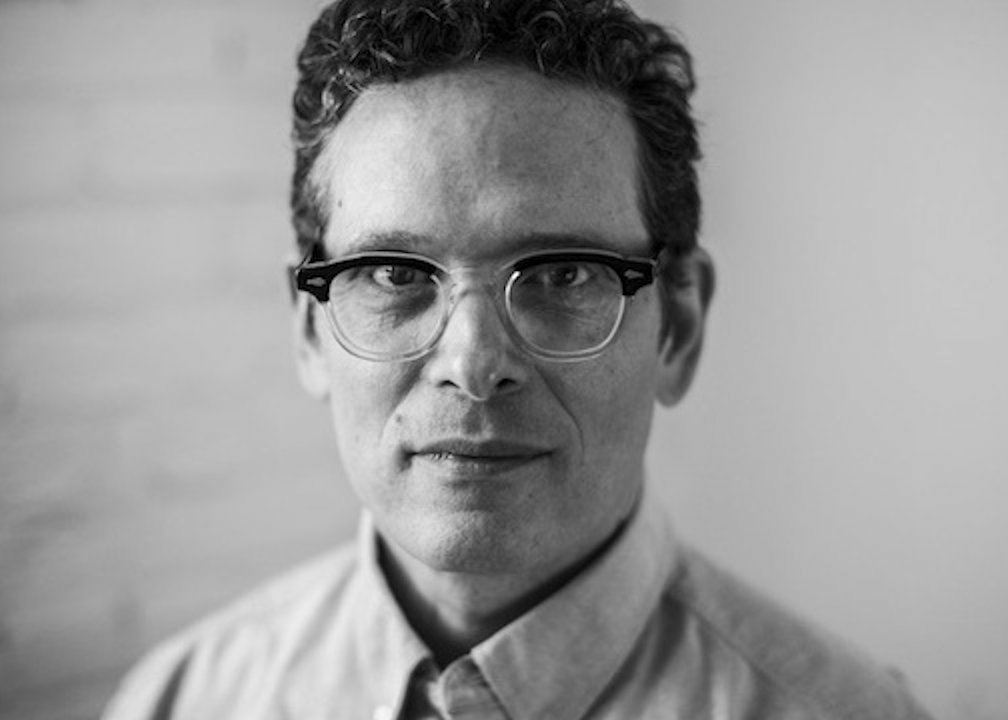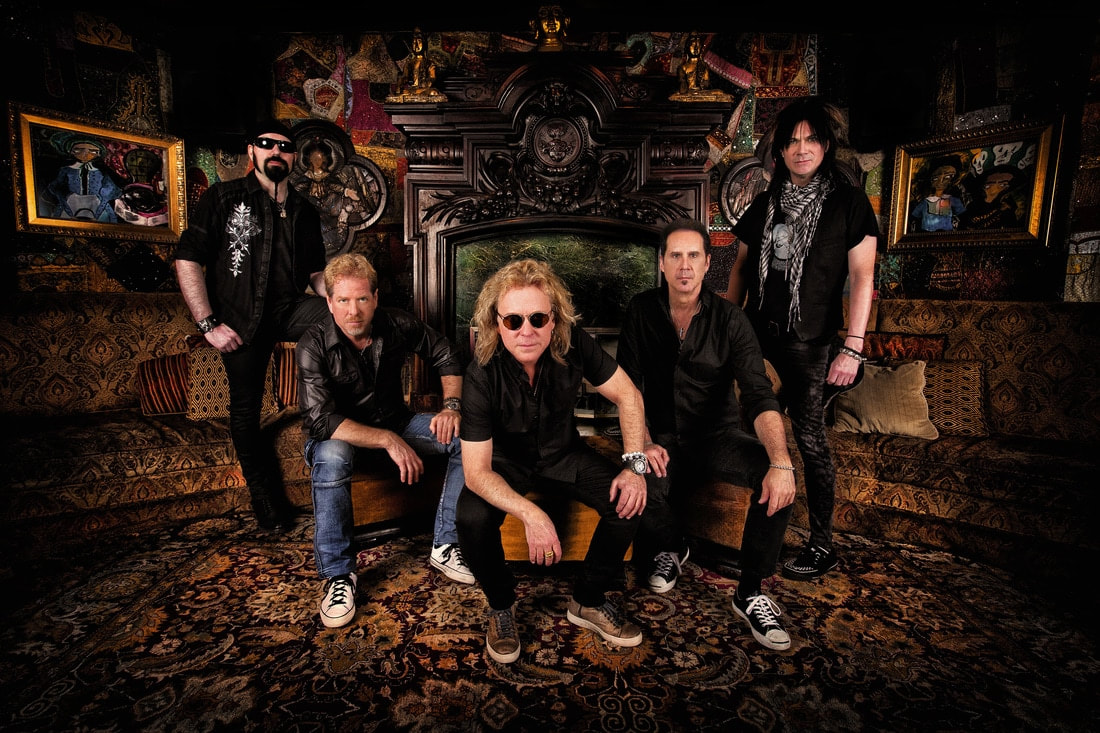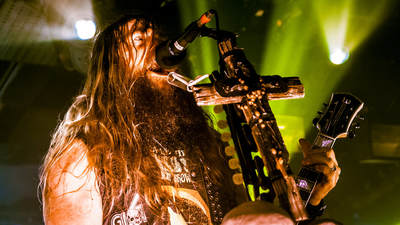|
David Prater has had a varied and successful career in the music business. Starting out playing drums with Santana, he went on to produce albums by FireHouse, Night Ranger, and Stephen Pearcy’s short lived Arcade project. He’s perhaps best known however, as the man behind the desk for Dream Theater’s defining ‘Images and Words’ opus. Readying an appearance on the TEC Track panel at Summer NAMM 2019, we sat down with David for a candid chat about his career. Helpless; Eamon O’Neill.
Hi David, how are you today?
I’m good, very good, and I’m not saying that euphemistically. I’m in Killeen, Texas. I’m living here temporarily before moving permanently to Colorado. I’m going to be moving, and the main reason is heat. You can be too warm! You’re preparing tohead to Summer NAMM in Nashville. I’m going to be doing a panel. The NAMM is a smaller convention than the one in January in Anaheim. Those things are just nuts. Historically, I’ve stayed away from them because it’s a sensory overload, but Nashville is going to be smaller, and I’m going to be doing a panel with some people that are all industry professionals. So the theme is going to be about the hardware, and indispensable equipment that every professional should have. It’s interesting how you describe winter NAMM as a sensory overload. Yeah, I’ve been to a couple, but the one in Anaheim, and I don’t know if there is any way to cram any more unpleasant sound into one experience! You know, you really need to walk through with like industrial noise protectors or something. But the thing is though, you run into a lot of old friends and contacts and people that you haven’t seen in a long time, and that’s always good to reconnect. Going right back to the beginning of your career, and you started off as a drummer. Yes, I started playing when I was 12. That's when I got my first kit. From the time I was 12 to probably 18, I was living in a part of Texas that was just kind of like Guantanamo; it was almost like a penal colony. There wasn’t a whole lot of culture, and there wasn’t a lot people that were even interested in playing music, much less be able to play it. So I was just left to my own devices, but it all changed when I went to a Frank Zappa show at the Armadillo World Headquarters [in Austin], one holiday Halloween weekend, and that’s when everything started to make sense to me. And I just went into an intense period of individual practice and wood shedding, and that’s when I started learning more about foreign time signatures, and kind of rudiments that I devised for myself, based upon what I had seen. And you ended up playing with Santana. Well, that was just a bizarre end to a trajectory that I would have never thought would have brought me there. It’s crazy because technically speaking, two years after I would have graduated from high school, I was a member of Santana, and that was just bizarre. I left Texas to move to San Francisco when I was 19, and I heard about an audition. I had been in San Francisco about six months, and I heard about an open audition for Carlos [Santana], and I figured out a way to weasel my way in, and I went in the with guns blazing and nailed it. That was in 1976, and the band were still quite a big offering at that stage. Well, it was an interesting period for Carlos because, after Woodstock, he did ‘Abraxas’ [1970], then he did ‘Santana III’ [1971], and then he went a completely different direction. He got involved in with John McLoughlin, and Alice Coletrane and really delved into a spiritual stream of consciousness; a kind of rock fusion, infused with Latin and jazz. The concerts still had a lot of appeal because there was still the classic Santana material being played, but the albums did not do particularly well. And that kept going that way until ’76 when that record ‘Amigos’ came out, and that was with the song ‘Europa’, the ballad, and that’s when he started to re-emerge and become the Santana that we know today. How did you transition from being a drummer, to being more involved in production?
Well, oddly enough, that had had started just before I began playing with Carlos. I would go into the studio and record material that I had written. I was also a very good guitar player at the time, and specifically as a soloist, so I would play the drums, and I would teach everybody the chord changes and the melodies. At that point it was primarily instrumental, but I just loved the whole aspect of putting an idea down, making it work, and then walking out of there with just an enormous sense of confidence, having taking something on and accomplished it. So that fuelled your desire to produce? I loved that whole aspect of being in the studio. But I wasn’t the one calling the shots until ’86 / ’87. Glen Burtnik was my first one, and that was very important. You scored your first major successes during the hair metal era of the late 1980s, with FireHouse. Yeah, the scuttlebutt at that time among the executives and the A&R and the upper echelon at Epic was they wanted a modern day version of Boston. They wanted something that was just kind of uncomplicated, non-political; just feel-good rock and roll. And that was what we went into, knowing that those were the criteria. So, that was my first order of the day, to make sure that whatever you do, there has to be quite a bit of that. That first FireHouse album, released in 1990, was a hugely successful album. FireHouse was my first experience of huge success. It was multi-platinum internationally, and the ballad [‘Love of a Lifetime’] was played on every format in the United States. The chart activity, it was very different back then. When I read Billboard today, it’s like reading a computer software manual; it just doesn’t make sense to me! It used be that when you opened up Billboard, you would immediately go to the ‘Hot 200’, and it was kind of like a scoreboard. It was like betting on horses, and so, I didn’t know that the record was doing as well as it was because I was so busy working. Had you any idea that it would be so big? A friend of mine, Derek Oliver at Atco / East Wast was working with Derek Shulman, who was the head of A&R at Atco. Derek Shulman had been the lead singer in Gentle Giant, and he was an incredibly successful A&R guy, and he brought over Derek Oliver, and Derek Oliver was the guy that said; “You know Dave, I think that record’s really going to do something, I really do”, and I thought; “Oh come on, you’re shitting me. I don’t believe it”, and he said; “No, really, I think it’s going to go!” And sure enough, at one point, I was looking at Billboard and the ballad, it went to the top 5 in the early part of ’91, and at that point, the people in front of us were Garth Brooks, Boyz II Men, Mariah Carey and Whitney Houston, and then FireHouse. So, when you get to that point, you realise; “Oh boy, we’ve done something here”. You were kept on to produce the second FireHouse album; they obviously thought that it was a winning combination.
Well, it may look that way, but that was a period in time where producers were persona non grata to many groups. You were considered just evil incarnate, and a lot of that was because of Mutt Lange and the way he would affiliate himself with all of the writing and publishing. That was primarily a financial orchestration that he did, and he became incredibly wealthy. Once the media got a hold of that story line, there was a lot of negative press in all of the music publications saying; “Whatever you do, don’t let your success be attributable to just the producer – change as soon as you can!” So did FireHouse actually want to change producer for the follow-up? Well, they did! They had to be talked back into it, and the record company basically told them what they were going to do. And of course, I agreed to it; I never knew there was a problem, but apparently there was. But we went in, and it almost eclipsed the sales of the first record. But in the United States, the producer is always in the hot seat and it is a razor’s edge to walk; it’s a high wire act with no net. Moving on, and you worked with Dream Theater during a transitional period, on both ‘Images and Words’ [1992], and ‘A Change of Seasons’ [1995]. Well, it was two completely different organisms; the DNA was totally different. Most people do not realise that the reason the first record [‘Images and Words’] was successful, a lot of it had to do with [keyboardist] Kevin Moore. He was, without question, a devotee of song writing, in the classical sense. He didn’t just listen to Fate’s Warning and Symphony X and prog madness; he listened to a wide pallet of material, from a song writing standpoint. So you had a different sense of melodic structure, melodic phrasing, chord changes, and so on, so working with those songs was just a joy to be involved wit because they took you somewhere compositionally, and, it was easier for me to be able to craft, essentially, the story line, sonically. I always wanted to leave them with a big grandiose ending on each composition if at all possible. ‘Change of Seasons’ could not have been more different. First of all, it was 22mins, 5 seconds for one song, and that would have been half of ‘Images and Words’ total running time. It was odd, for sure. It was odd in terms of…? Well, the material. Kevin was gone. Derek Sherinian had come in, and I knew Derek from working with Night Ranger. So we already kind of got on with each other because of that. He was a great player, a really accomplished musician, but from a compositional standpoint, I don’t think he was nearly as involved in that, as a writer, like Kevin Moore. He was really a very brute intellectual person. First of all, he was an amazing keyboardist. As far as his solos, I just think they’re wonderful; they’re unpredictable, and they’re pyrotechnic, they’re fiery. But working with Kevin I enjoyed, and I was really saddened when I heard he had decided to leave, because they were just at that point to where you just thought; “Oh my god, this is incredible; the sky’s the limit”. I never really did get the story line behind what exactly happened, but he was pretty uncompromising in what he wanted to do. So you missed Kevin Moore’s input? It was very different, and in all honesty, I don’t think that the quality of the writing, from a classical or traditional song writing standpoint, held up to the song writing of the first record. But I did everything that I could to try and make it that way Moving on, and you worked with Ratt vocalist Stephen Pearcy in his band Arcade in 1992; with Grunge in the ascent, did you know you were going up against it?
Absolutely. It was uncomfortable. It was awkward and it was intense. It was't just Grunge; it hip-hop too, and as far as ’92 being the height of the Mötley Crüe Sunset Strip era? No, no, that was gone! I mean, there was no question. I had heard months earlier from Jon Bon Jovi, he talked to a friend of mine who relayed it to me; he said; “You’re not going to believe what’s happening”. He said that bands like Cinderella and others of that ilk were just being dropped – and their previous record had sold five or six million copies! But I think what it was is the record companies saw the writing on the wall. Traditionally, after you’ve had an album that’s done good, if they’re going to pick up your option again, they’re going to have to pay a lot of money to retain you on the label, and so all the labels back then, they were cutting their losses. So you could see that Arcade wasn’t going to be a success? I knew when I did Steve Pearcy’s record that it almost seemed pointless. I did the best that I could. I thought that the material was really good, but there were some conflicts, so I had to leave before the album was officially finished and mixed, so I didn’t get a chance to mix it. I would give the mix on it a B or a B-, but the roughs that I had at the time, they were kicking ass, and I just thought; “man, this going to be a great record”. But there was just so much tension at that point in Los Angeles and in the music community, and it kind of bled over into the making of that record, and plus the fact of what you’re talking about; I mean, Grunge was just a juggernaut, it was unstoppable. How did you feel about the changes that Grunge brought? I supported it. I had seen many changes within the music scene going back several decades. I was in London and saw the whole thing with the Marquee club; Elvis Costello, and the Sex Pistols and Tom Robinson, and I saw in the ‘80s new wave coming out. And then in the late ‘80s you saw the hair metal thing happening, then you saw Grunge, so I had seen these kind of rebellious periods of music, and for me it was perfectly natural. But from a business standpoint though, you knew that if you were associated with something that was considered the Antichrist, the chances of you working with the success that you had enjoyed just a short while earlier, those days were probably gone. So did you decide to step away from the music business after that? Well, I stayed busy, and I had done well enough financially, and I had some royalties that I could step back and clear my head, and I saw that if I kept going, it was just going to be an exercise in futility. It was just going to be pointless because it had all been done before, and no sooner had ‘Images and Words’ come out than there were a lot of bands trying to mimic what they were doing from a prog standpoint. I looked at that and I thought to myself that this a time for to just kind of take a breath and wait until you feel motivated and enthusiastic about being creative again. Finally, what’s happening going forward? Well, after the smoke had cleared, I just felt a sense of freedom and willingness, and urgency to get back in the saddle. But my priorities could not be more different than they were back during the ‘80s and the ‘90s. Back then, you were really trying to get lucrative contracts; now, you really have to get a lot more speculative and a lot more of an entrepreneur, and if you’re going to do that, you better do something that is unique and different. Like this interview? Like us on Facebook and follow us on Twitter for regular updates & more of the same. |
|
David prater
"The producer is always in the hot seat and it is a razor’s edge to walk. It’s a high wire act with no net."
© 2016 - 2024 eonmusic.co.ukContact: [email protected]
|




